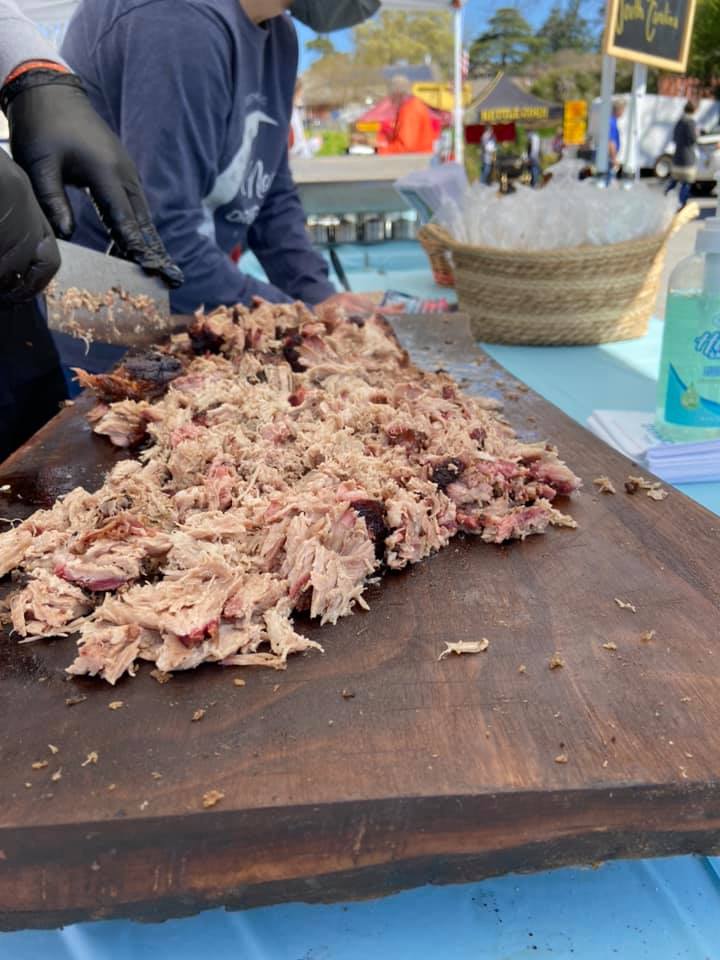A new temporary exhibit focused on the rich and delicious history of barbecue in our region opens at the Bart Garrison Agricultural Museum of South Carolina [BGAMSC] on Saturday, November 6th at 10 a.m. in correlation with the museum’s annual Farm Fest. SC Humanities supported this exhibit and related programming with a “SC: Food for Thought” grant award.
The goal of the project “Swine to Sauce: A History of Barbecue in South Carolina” is to educate visitors of all ages on the history and practice of pork production and preparation. Historically, African Americans and Native Americans heavily impacted traditional whole-hog barbecue and a main theme of the exhibit will describe their influence.
The exhibit will be showcased during the BGAMSC’s annual Farm Fest. This event will be hosting agriculturally-themed vendors from around the upstate as well as Century Farmers. Other activities at Farm Fest include hay rides, kids crafts, farm animals, farm demonstrations, and tours of the Agricultural Museum and Woodburn Plantation. The event runs from 10:00 a.m. – 3:00 p.m. at 120 History Lane, Pendleton, SC, with parking available at Tri-County Tech. Tickets are $5.
“The BGAMSC team has been preparing barbecue for years and is excited to share both the history and the passion that we hold for the pursuit,” says Andrew Stevenson, grants and fundraising coordinator. “We are polling folks about their favorite sauces and offering visitors special recipes from around the state.”
BGAMSC is committed to the interpretation and preservation of South Carolina’s agricultural heritage, and the impact and importance of agriculture to current and future culture and economies.. It is open from 10 a.m. to 4 p.m. Thursday – Saturday.
The mission of SC Humanities is to enrich the cultural and intellectual lives of all South Carolinians. Established in 1973, this 501(c) 3 organization is governed by a volunteer 21-member Board of Directors comprised of community leaders from throughout the state. It presents and/or supports literary initiatives, lectures, exhibits, festivals, publications, oral history projects, videos and other humanities-based experiences that directly or indirectly reach more than 250,000 citizens annually.
